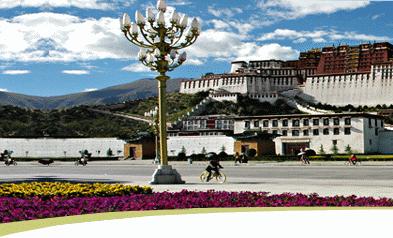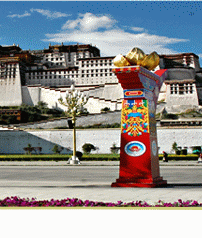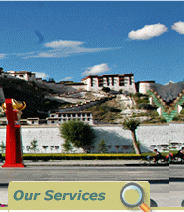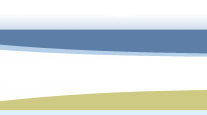| The Roof
of the Word
Today in the age of information with
jet aircraft, highways and computer networks mysterious
places are rare to be found; but Tibet is an
exception.
Refereed as Shangri La, The forbidden Land, The Roof
of the World, and by many more, the mysterious Buddhist
Kingdom remained long closed to foreigners, exerting
a strong hold on the imagination of the world.
For centuries, it has
fascinated mankind. It was hardly accessible to the
outside world and has been always a challenge to human
beings. Tibet, a "forbidden land" not only
by man but also by nature, attracted many explorers,
scholars, and pilgrims and adventure lovers, all in
pursuit of "Real Shangri La".
It is not only the geographical
and natural enchants but also a long historical culture
and religion that appeal the foreigners to visit Tibet
at least once in a lifetime.
Climate
You can travel to Tibet throughout the year but mid
July through to the end of September is the best period.
The temperature varies
sharply from the south grassland to north plateau. The
south is warm
and rainy. Most rain
falls during May to September. It is warm from June
to August. The coldest months are from December to February
and crossing over the passes becomes almost impossible.
Below given is a table of average temperature, rainfall
and sunshine hours in Tibet.
Accommodations
Hotels/guesthouses have basic facilities and even a
hotel in Lhasa may not meet your expectation. We always
try to provide our clients a twin room but it may not
always be possible. Sometime, because of weather factor
or road condition, we may not be able to bring you to
the hotel of our contract or rooms may be already sold
out due to delay arrival and we may have to request
you to adjust in whatever accommodation available at
that moment. In Lhasa, Gyantse and Xigatse, you can
expect twin room with attached toilet/shower but other
places; you will have to adjust with common restroom
facilities.
Electricity and hot water supply may be disrupted although
the hotels of cities promise them.
Transportation
From Kathmandu, you will be transferred by a van/coach
to Kodari (Tibet border 116 km) accompanied by our escort
and from Tibet border onwards, Tibetan crews will drive
you all the way to Lhasa. In the event of landslides
or road blockade by any reason and service of porters
are required to carry your luggage or hire another means
of transport between the two landslides or for onward
journey, you will be asked to contribute a nominal sum
of money.
During the change of vehicle in the border, you are
requested to help yourself about your luggage.
Guide
Tibetan guides are reported to have limited English
and you may not expect a fluent explanation about culture
and religion or any other academic topics. He will serve
more as a geographical guide and will be responsible
for dealing with bureaucracies on the way. However,
we will try our best to assign you the best guide available
though.
Clothing
The weather is cold, harsh and dry. You will need enough
warm cloths , tennis shoes, suntan cream, sunglasses,
hats, scarves, lip guards etc.
Food
Your trip includes only breakfast. So, you may want
to carry with you energy bars, dry foods like chocolates,
cookies etc to eat on the way. Restaurants in Lhasa,Gyantse
and Xigatse
serve varieties of cuisines ranging from Chinese to
Continental but in other places, you will find basic
Tibetan foods.
Money
In China, you will have to use RMB (Chinese money).
Saturday and Sundays, banks are closed but in the border
sides, you may encounter with a moneychanger everyday.
Travelers' cheques or credit cards are not accepted
in most parts of Tibet. So, you may want to carry about
100 dollars in cash for lunch/dinner and for small souvenirs.
Tipping
Guides and Drivers would be happy
to receive tip and in fact it motivates them to work
harder and provide better service.
Altitude Sickness
Travelers to Tibet are reported to
exhibit mild symptoms of altitude sickness. So, some
measures of precaution and remedies should be taken.
Complaints of headache, fever, loss of appetite, uneasiness,
stomach disorder etc can come up before acclimatization.
Travelers with heart, lungs and blood diseases should
consult with their doctors before they sign up for a
trip.
Consumption of enough liquid food (not a liquor!) and
enough rest is recommended if you notice the symptoms
of sickness.
|






